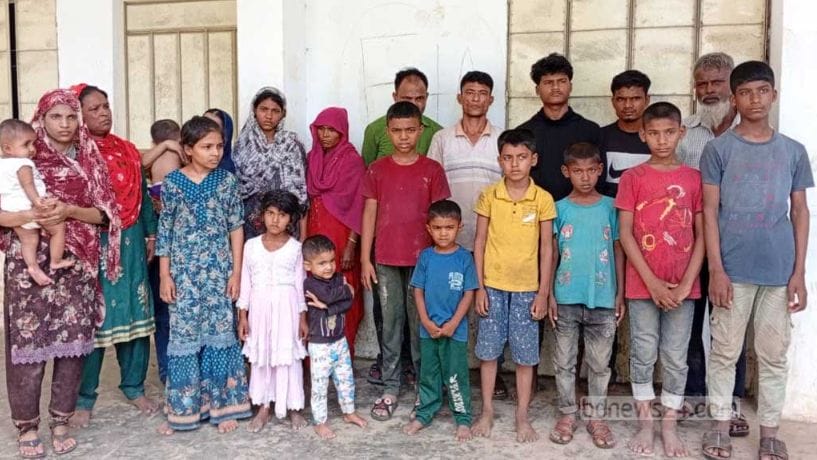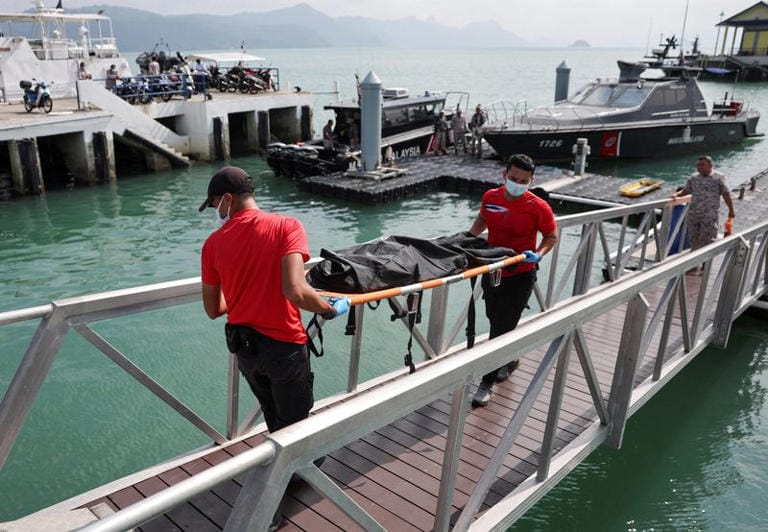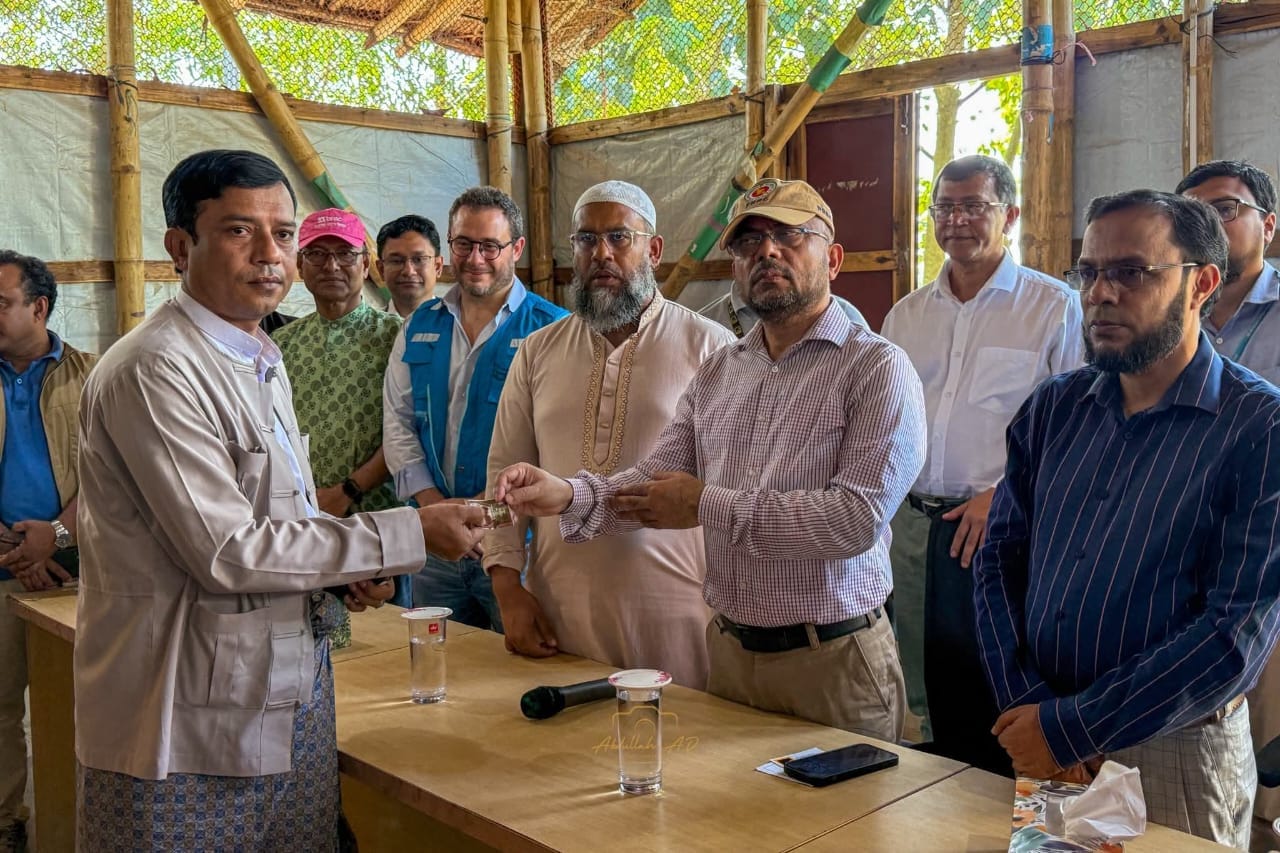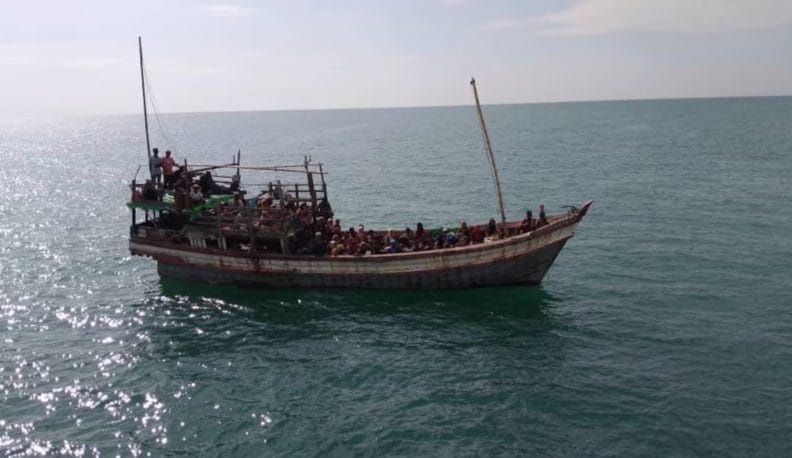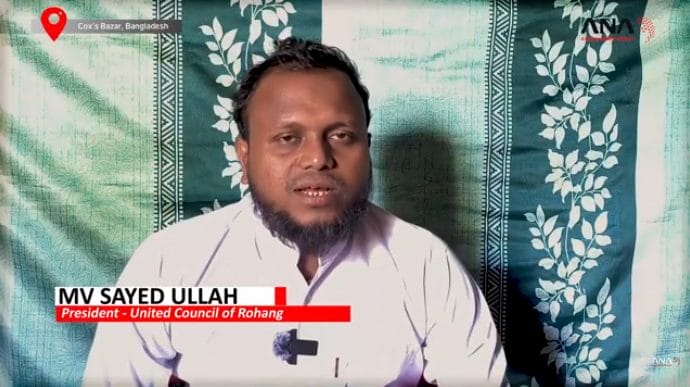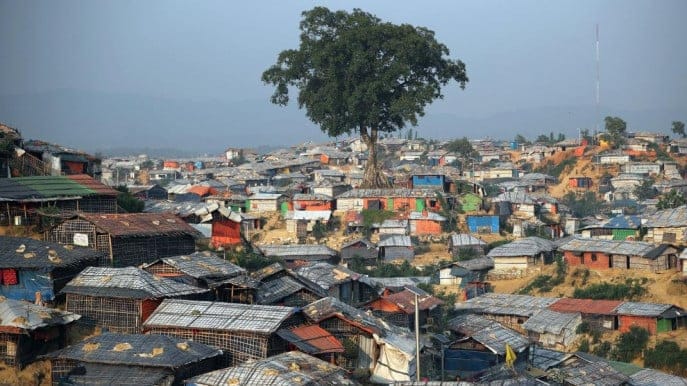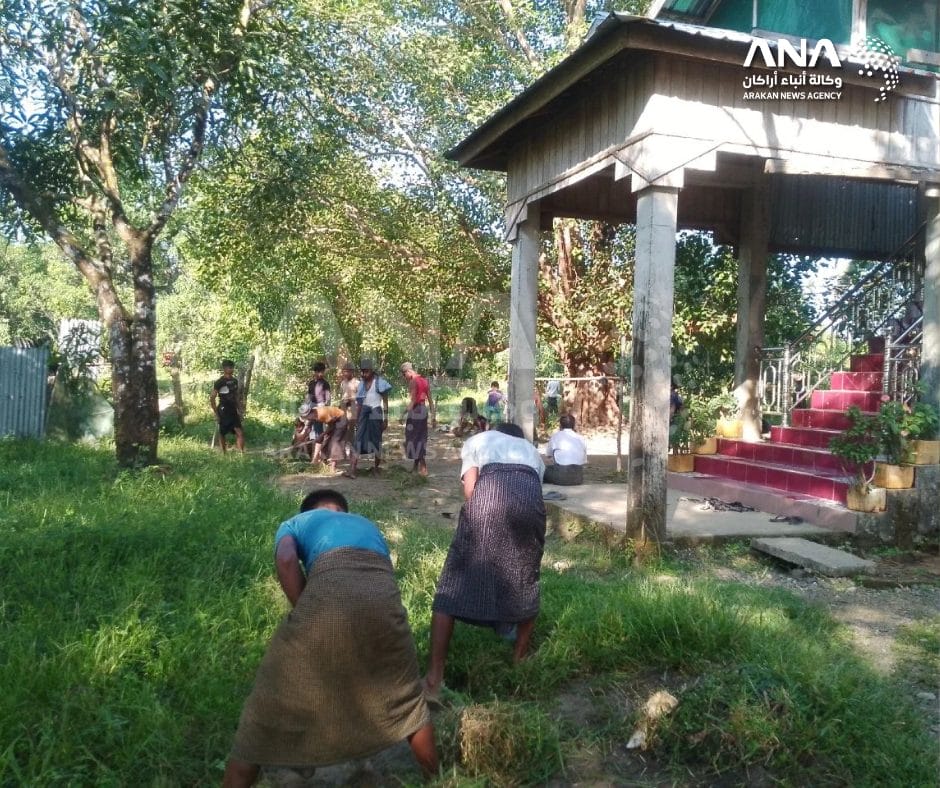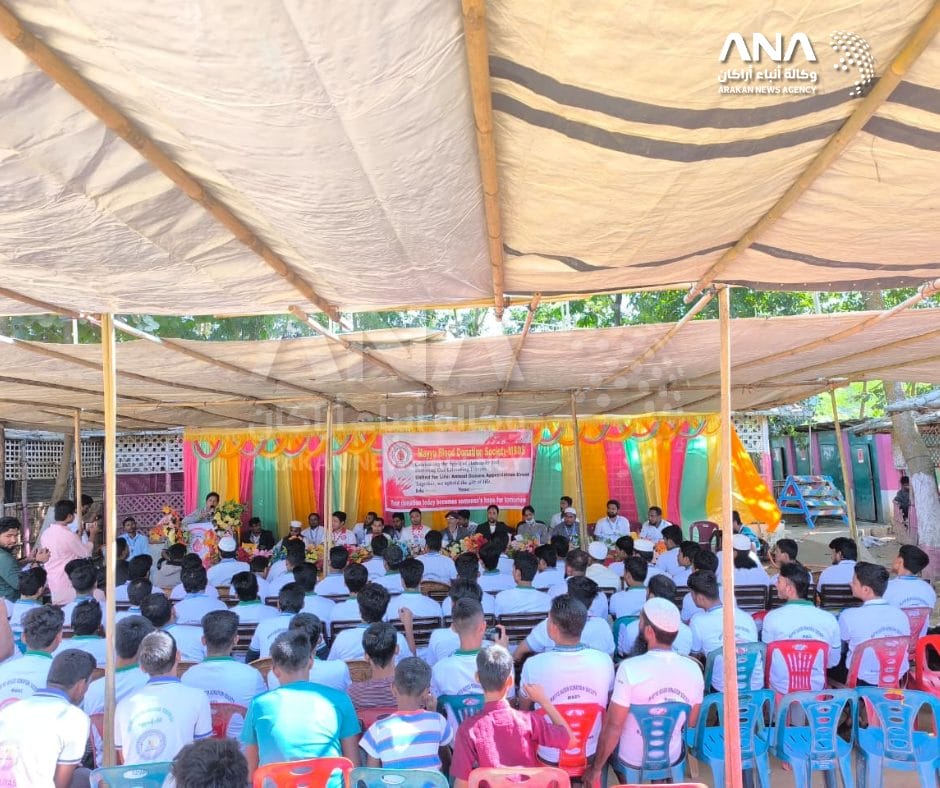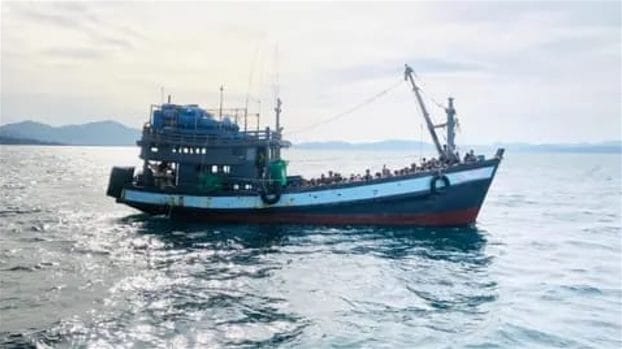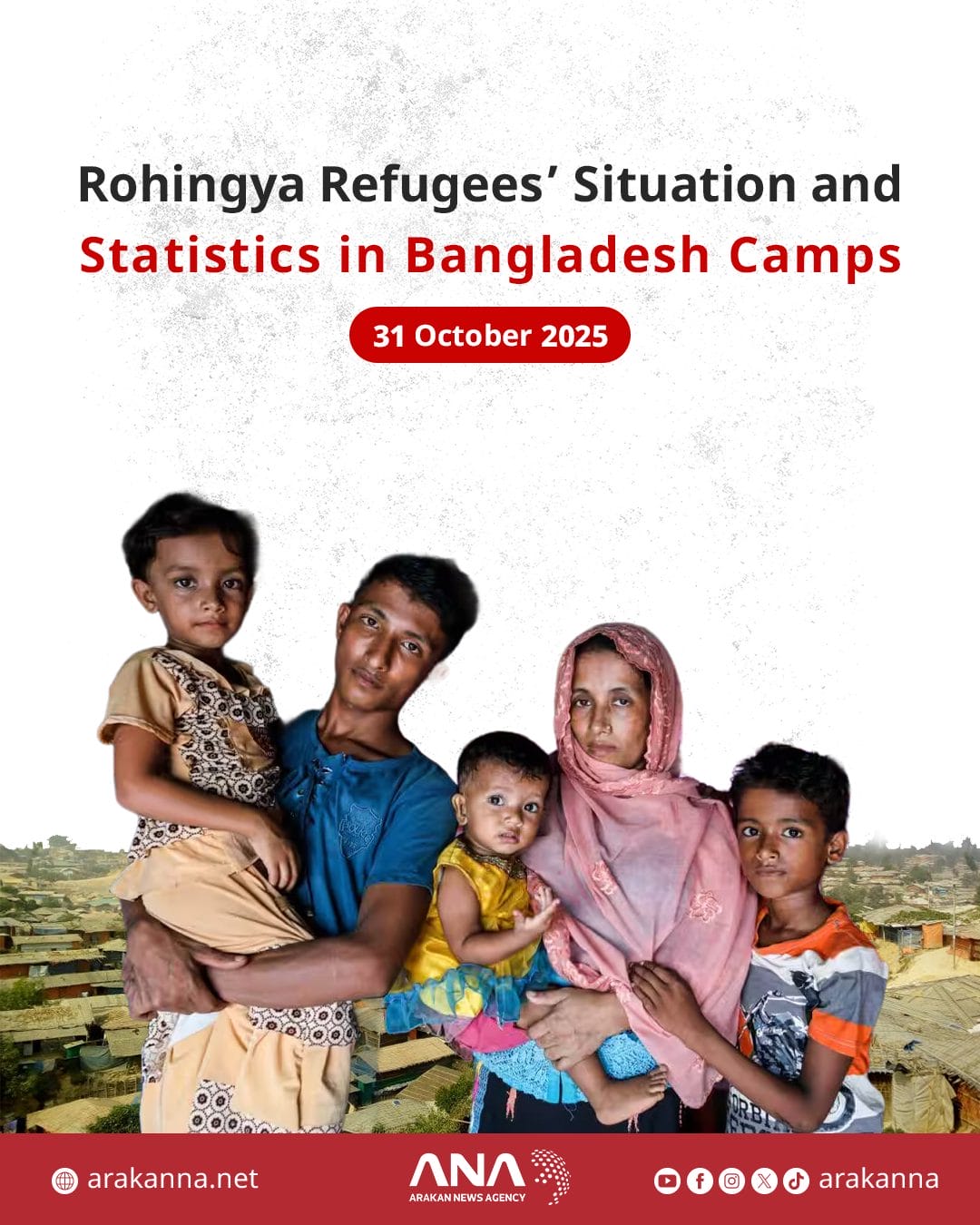Arakan News Agency
On Thursday night, Indian Border Security Forces pushed 21 Rohingya refugees into Bangladeshi territory through the Nakugaon border in Nalitabari, Sherpur district.
According to Colonel Mehdi Hassan, commander of the 39th battalion of the Bangladeshi Border Guard, the group included 5 men, 5 women, and 11 children from six families. They were detained by a patrol and transferred to a local government primary school prepared as a temporary shelter.
It is believed they fled from the Balukhali Rohingya camp in Ukhia, Cox’s Bazar area, and headed to the Jammu and Kashmir region in India, where they worked in hotels and homes.
Indian police had arrested them about a month ago on charges of illegal residency and later handed them over to Border Security Forces, who forcibly returned them to Bangladesh before they were detained and their identities verified to take appropriate action.
This is not the first incident of its kind; Indian Border Security Forces had previously pushed 10 Rohingya, including children, into Bangladesh through the Bareinahata border in the same area on July 11.
Earlier, Bangladeshi Border Guard forces announced that Indian Border Security Forces had forcibly pushed 14 Rohingya refugees into Bangladesh through a border area.
In June, Indian police arrested 22 Rohingya in an under-construction house in West Bengal, and a court sentenced 8 Rohingya to two years in prison with labor and fines for illegal entry and residence, urging their deportation to Myanmar after serving their sentence.
India is not a signatory to the 1951 Refugee Convention or its 1967 Protocol and treats Rohingya in the country as illegal migrants, carrying out arrests and deportations even for those registered with the UN Refugee Agency.
More than a million Rohingya fled Myanmar’s Arakan State in recent years after the Myanmar Army launched a genocide campaign against them in 2017. The Arakan Army launched a military campaign to control the state in November 2023, affecting them with violence, displacement, and forced recruitment. Most of them live in crowded camps in Bangladesh, while some are seeking better living conditions in other countries.

